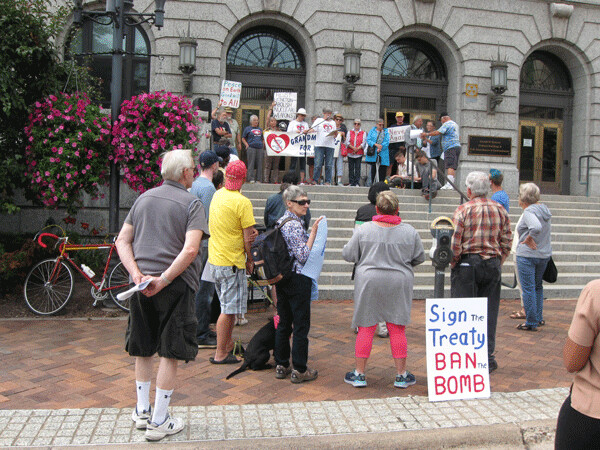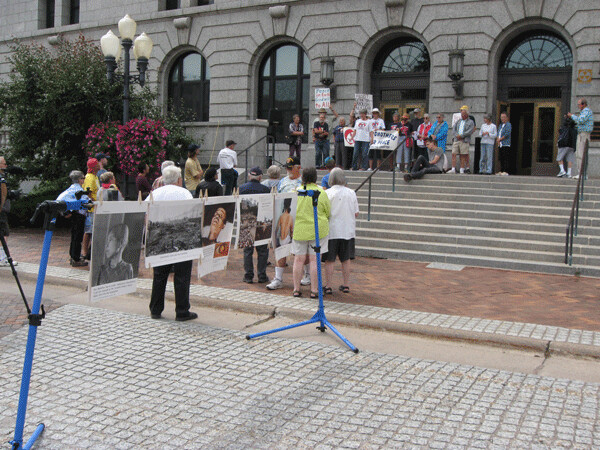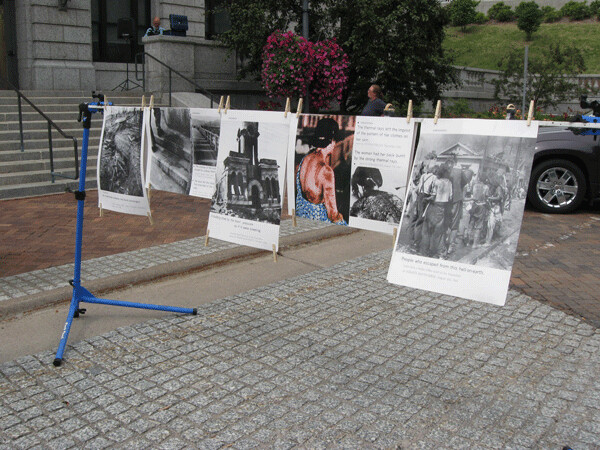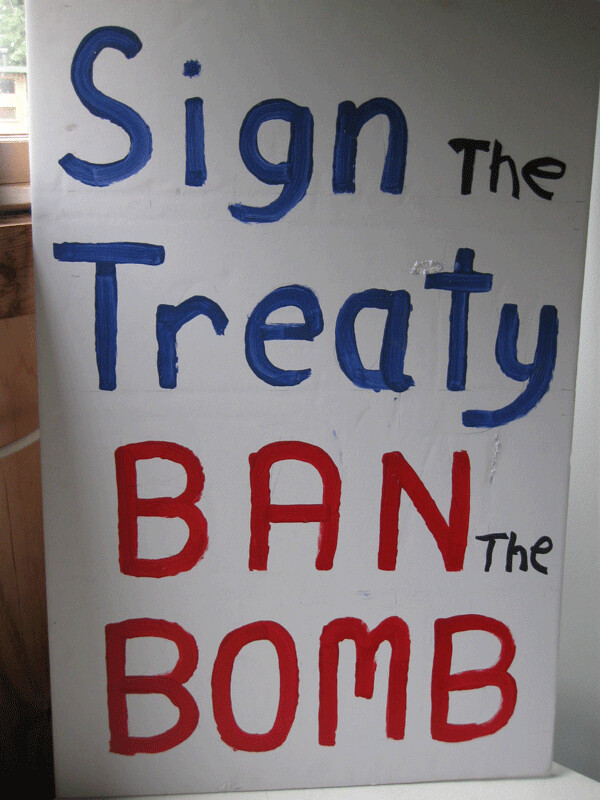News & Articles
Browse all content by date.


Seventy two years ago, The Untied States became the first and only country to use nuclear weapons on civilians. On August 6 and 9, 1945 we bombed Hiroshima and Nagasaki killing hundreds of thousands of innocent people.
We tell ourselves it was necessary. It was to save lives and end the war. We tell ourselves that nuclear weapons kept us safe during the Cold War and are necessary for our “defense” today. But these rationalizations ring hollow when examined closely. There were alternatives in 1945, and there are alternatives today to perpetuating the threat of a nuclear holocaust.
On July 7th the United Nations finalized a treaty to ban nuclear weapons. Nations will begin officially signing the treaty at the General Assembly meeting this fall. The treaty has been endorsed by 122 nations. The United States refused to participate in creating the treaty and has stated it will not sign it. Once again, rather than leading efforts to build peace, the United States is a major impediment to solving world problems.
The treaty is not a panacea. The supporters recognize that without the support of the nuclear nations, especially the United States, it will only be a dream for the future. But it does create a path to reach that future. Like other disarmament treaties, it establishes norms of civilized behavior for all nations to work toward. Specifically nations agree to never under any circumstances:
• Develop, test, produce, manufacture, otherwise acquire, possess or stockpile nuclear weapons
• Use, or threaten to use, nuclear weapons
• Transfer or receive nuclear weapons from other countries
• Allow installation or deployment of any nuclear weapons in its territory
In Duluth on August 9th a group of people gathered at the Duluth Federal Building to raise awareness of the U.N. treaty and to lobby Congress to support signing the treaty. Actions included signing a petition and delivering postcards to Senator Al Franken's office. The rally was organized by Loaves and Fishes, Grandmothers of Peace, and Veterans for Peace. Minnesota based Women Against Military Madness (WAMM) is leading an effort to get the Minnesota congressional delegation to support signing the treaty. The rally supported their efforts.

Since nuclear weapons were created, people have debated whether they ended WW2, prevented the Cold War from becoming hot, or kept America safe. Whether Mutually Assured Destruction (MAD) worked in the past or not is really irrelevant. It is an insane policy for the future. As the preamble of the nuclear weapons treaty asserts:
“catastrophic humanitarian consequences ... would result from any use of nuclear weapons,” [and their complete elimination] “remains the only way to guarantee that nuclear weapons are never used again under any circumstances.”
Nuclear weapons are insane because we all live downwind from the rest of the world. Literally what “goes around comes around.” As the nuclear accidents at Chernobyl and Fukushima demonstrate, all of us can be affected by what happens on the other side of the world. Even a limited use of nuclear weapons would have long lasting environmental affects. The potential for catastrophe is not hypothetical rhetoric.
The United States and Russia still have thousands of nuclear weapons on “alert,” ready to be launched in minutes. Unstable, or conflict plagued, countries like Pakistan, India, and Israel have nuclear weapons. The threat of an accident, a rogue firing, a mistaken launch, or a technical malfunction is simply too great. Nuclear weapons, because they exist, are a very real threat to the safety of everyone.
Our current foreign policy is based on the capacity, and threat, to annihilate others. But this policy risks our own annihilation. We need a new 21st century policy. We need new thinking that “projects” cooperation and peaceful problem solving rather than “projecting” military power. We need foreign policy that advances the needs of people rather than the wants of the military industrial complex. General George Lee Butler, head of US Strategic Nuclear Forces from 1991-1994, has said,
“It is a measure of arrogance to assert that a nuclear weapons-free world is impossible when 95% of the nations of the world are already nuclear-free. There is no security in nuclear weapons. It is a fool’s game.”
Citizens will have to demand action on this treaty if banning the bomb is to become a reality. It is unlikely that politicians from either party will support signing this treaty unless pushed by considerable public pressure. War has always been bi-partisan in this country. Excessive military spending and a highly militarized foreign policy has always been supported by Republicans and most Democrats.

As suggested by WAMM, everyone can help the effort by taking the following actions:
• Sign the petition (download it and circulate to your friends and neighbors)
• Write a letter to the editor
• Send a post card to, or call, or email, your legislators
• Educate yourself and others about the costs and risks of nuclear war ·
Join and support an advocacy group working for peace It doesn't take much time and you do not need to be an eloquent activist. You can download the postcard and the petition at the WAMM website, www.womenagainstmilitarymadness.org/ban-all-nuclear-weapons-campaign.
There are many good websites to learn more. I would suggest a few: Nuclear Age Peace Foundation, https://www.wagingpeace.org) Union for Concerned Scientists, http://www.ucsusa.org International Campaign to Abolish Nuclear Weapons, http://www.icanw.org It is up to us, as citizens, to remember the past and take action to build a better, safer, nuclear weapons free future.
| Tweet |


